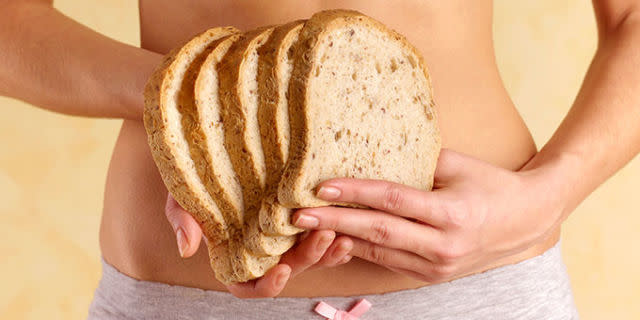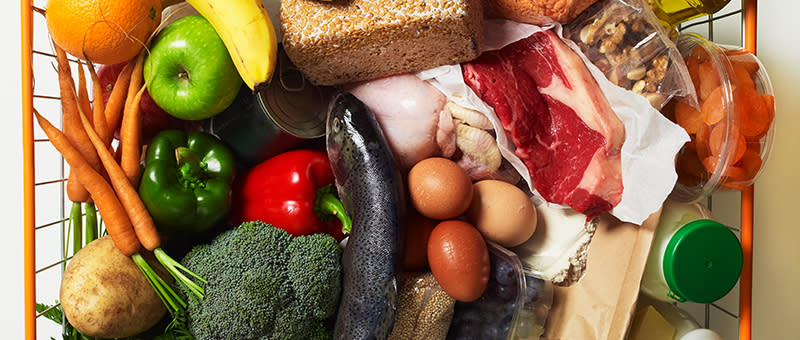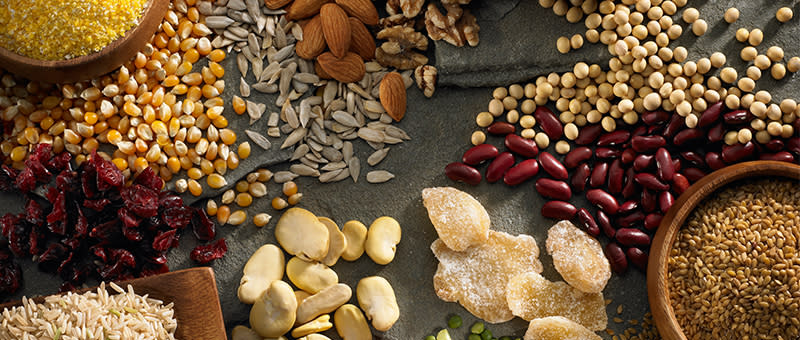Gluten-free diet: Could you benefit?

In recent times there's been a real highlight on gluten and more specifically gluten-free diets, a trend, which has been booming in the past couple of years. The idea has caught on with many people thinking that gluten free is healthy and that ditching bread is good for you.
However, gluten-free diets are not for everyone and here's why. We look into what gluten is, what foods contain gluten and whether or not a gluten-free diet could be right for you, busting some myths along the way with expert advice from Kirsten Crothers, a Gut Health Dietitian & BDA Spokesperson.

Why gluten is important for your health
So, firstly gluten is mentioned so often, but what is it? Kirsten describes it simply as 'a protein found in wheat, barley and rye'. This protein is perfectly natural and in most normal diets actually incredibly important.
'The products that gluten is found in are also sources of dietary fibre, which can help to reduce your risk of bowel cancer, diabetes and will help with weight loss. So excluding them unnecessarily could contribute to poor health.'
Gluten is a protein found in wheat, barley and rye
And that's not the only reason gluten can be important for your health, as 'wheat and barley, which contain gluten, also contain inulin,' says Kirsten.
'Inulin is a prebiotic (good gut bacteria food). Avoiding these foods could negatively affect gut health,' she explains
So, if gluten can actually be good source of fibre and vital for your gut health, then why would start a gluten-free diet?
In the majority of cases a gluten-free diet is a diet undertaken with anyone living with coeliac disease. Kirsten, who is a coeliac herself says: 'Gluten causes an autoimmune response in their body (their immune system wrongly attacks gluten) this results in damage to their gut.
'This damage can result in malabsorption, anaemia, osteoporosis and even bowel cancer if it continues to happen'.
Misconceptions about a gluten free diet
Some of the many foods that contain gluten are breads, pasta and cakes and also beer. There's a misconception that living a gluten-free diet means weight loss – but gluten-free alternatives to these sorts of products can actually be made up of a higher fat, sugar or salt content to enhance their flavour.
Kirsten has suggested healthier alternatives to be nuts, seeds, fruit, vegetables, quinoa, brown rice, gluten-free brown breads, and gluten-free pasta made from brown rice.
Gluten is actually found in many things you might not quite expect, like sauces and malt, but any ingredients that include gluten must be clearly stated on the packet. Kirsten recommends downloading a free gluten-free food checker app called coeliac UK, to scan the barcodes of certain products for a detailed description of whether or not they contain gluten.

Although restaurants are slowly incorporating gluten-free diets into their menus and thinking, they're still not there yet so it's always best to double check with the staff.
But if you're tempted to go gluten-free because you think it's good for your health – don't.
'Unless you have coeliac disease or a non-coeliac gluten sensitivity there are no health benefits to avoiding gluten,' says Kirsten.
If you think you may have coeliac disease, always check with your GP rather than self-diagnose.
You Might Also Like


